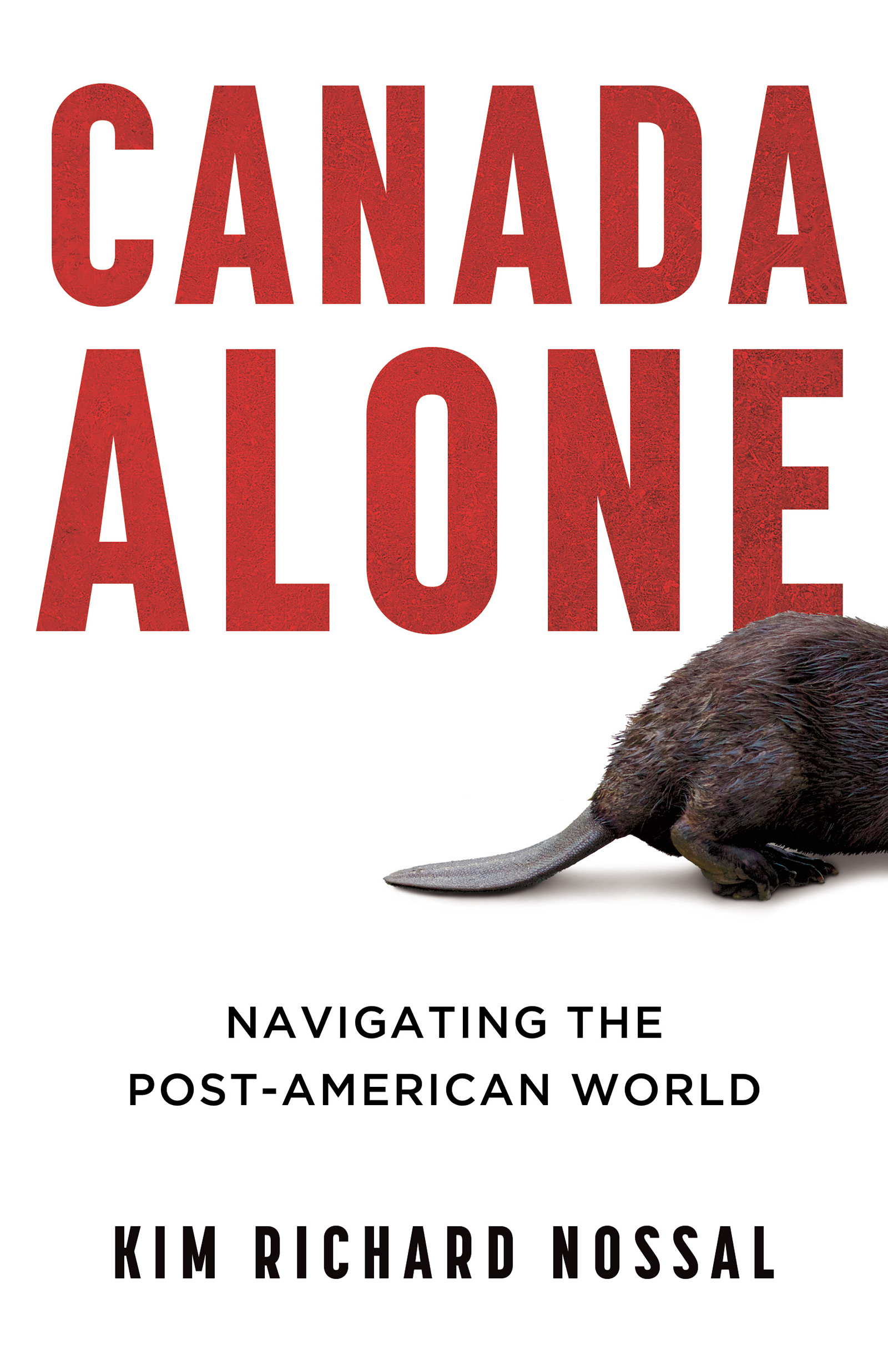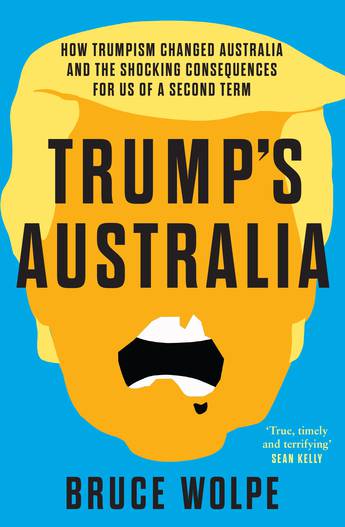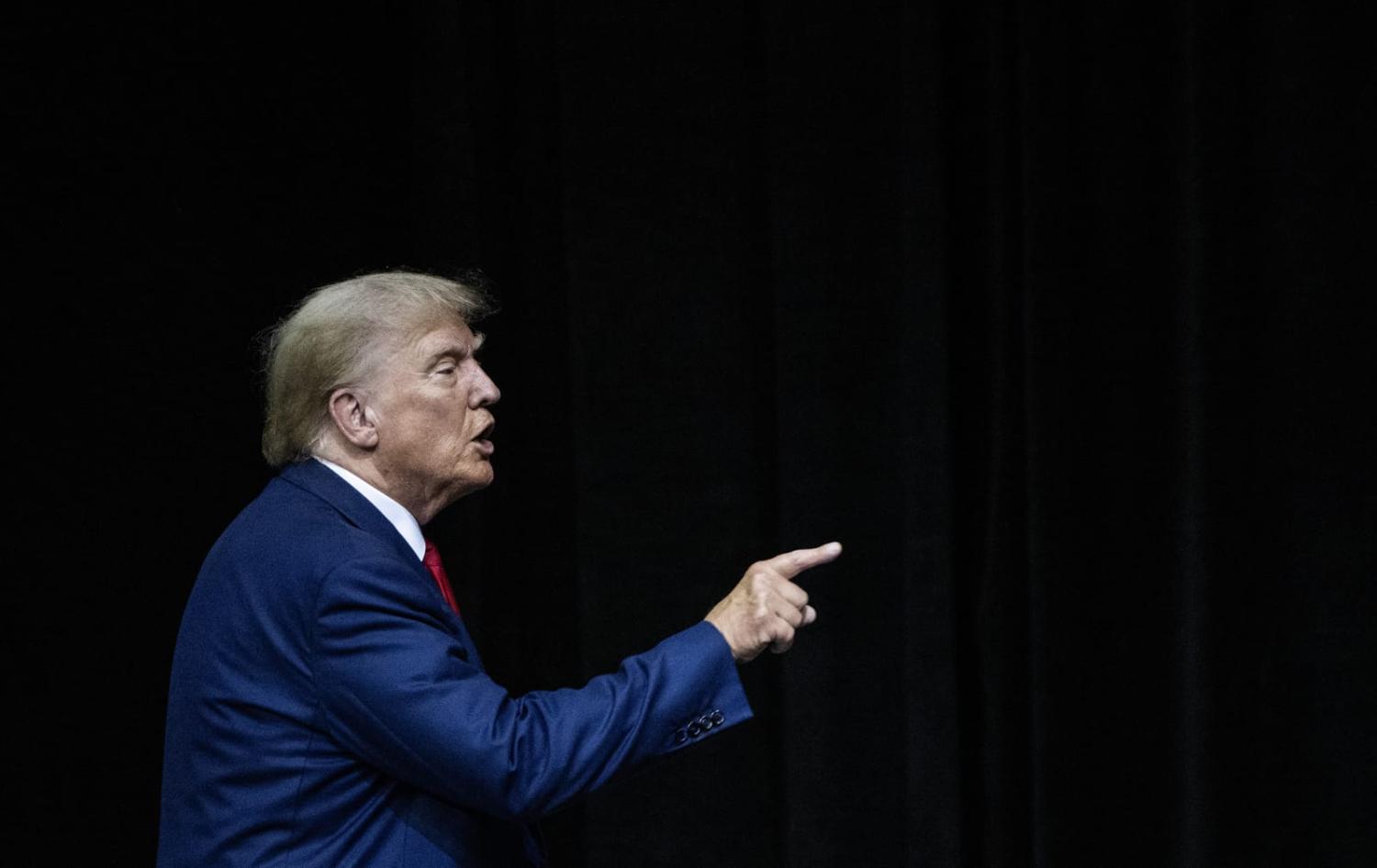Review: Canada Alone by Kim Richard Nossal (Dundurn, 2023), and Trump’s Australia by Bruce Wolpe (Allen and Unwin, 2023)
After 9/11, French newspaper Le Monde turned over its front page to an affirmation that “we are all Americans”. That was a worthy, fitting declaration of sympathy and solidarity. Nonetheless, in 2023 as compared with 2001, the sentence can take a different meaning.
We are all still Americans in the sense not only of cultural affinities and historical connections. Our interests are enmeshed with the United States economy and our security is entangled with American notions of global strategic advantage.
Now, though, we need to adjust to a world in which critical issues might be resolved without or against the United States, where the Americans may no longer choose to “pay any price, bear any burden, meet any hardship” to retain global leadership.
Perturbed analysts are rightly just as concerned with American polls, primaries and campaign promises as they would usually be with local by-elections or party slogans. The elephant in the room, and a powerful and malevolent pachyderm is it, is the prospect of Donald Trump winning a second presidential term this time next year. Both these books therefore sometimes read like previews of the next instalment in a horror film franchise.

Canada Alone may seem an over-stated title, given the relatively soft security choices for the second-biggest country in the world, isolated by two oceans, protected by an 8891-kilometre border with the United States, enjoying domestic tranquillity and sustained prosperity. Kim Richard Nossal is, however, worried.
Nossal maintains that, for Canada as for other American allies, “foreign and defence policies were designed for a world in which the United States plays a leadership role in shaping a particular kind of world order”. After reviewing Trump’s assaults on that role and that order, Nossal proceeds to offer a series of suggestions about how Canada might cope with four more years of Trump.
His analysis is informed by some surprising polling. Asked about whether the United States represented a “positive force” in the world, only 54% of Canadians agreed in 2008, with the figure declining to 46% in 2022. In 2020, 66% of Canadians held an “unfavourable” view of their superpower neighbour.
The scepticism among those polled is reflected in Nossal’s judgments. He regards the Republican party as, “at its core, un-democratic, illiberal and authoritarian”. He frets about Americans’ “conservative-nationalist tradition”, especially when confronted with Russian revanchism and Chinese ambitions. He asks himself whether “the West” might fragment were Trump re-elected. Nossal is a thoughtful but pessimistic advocate of civilised virtues: rationality, predictability and civility itself.
For Nossal, partial solutions to these challenges include more Canadian defence spending in the Arctic, a dialogue among Canadians on the country’s geostrategic future, more multilateralism (“clubs are trumps”) and more diversified diplomacy. That last recommendation is reminiscent of then prime minister Pierre Trudeau’s “third option” in the 1970s, encouraging Canadians to focus more sharply on Japan and the European Union rather than their southern neighbour alone.

Turning to Australia, Nossal thinks it “unlikely to see a willingness to simply follow the US unthinkingly in a drift to war” with China. His two adverbs, “simply” and “unthinkingly”, deserve elaboration. Bruce Wolpe, in Trump’s Australia, writing about a less thin-skinned and less high-minded country, provides more clear-cut conclusions. His most trenchant observation is that, during a second Trump term, “American democracy as we have known it will come to an end”.
Nossal is an emeritus professor at Canada’s finest university; Wolpe has more extensive experience in government as well as at a think tank. Both, though, share “the vice in the chest and tightness in the stomach”, which Wolpe diagnoses as a response to the prospect of Trump re-elected.
For Wolpe as for Nossal, the essential question is whether the United States will re-commit itself to the pledge Barack Obama gave in 2008: “We cannot turn back. We cannot walk alone.” Wolpe reckons that, with “no effective guardrails”, once in office Trump “will know exactly how to execute what he wants to accomplish”. Here as elsewhere, Wolpe backs up his own views by talking with a “powerful consensus” of largely anonymous officials, past and present.
Wolpe’s principal recommendation is quite similar to that offered by Nossal: show willingness, pull your weight as an ally, demonstrate that the Americans need and should value you. Re-hashed for the hypothesis of 2025, that counsel amounts to Nixon’s 1969 Guam doctrine. American allies should stump up the wherewithal to handle problems and take responsibility themselves. Or, as Wolpe puts that point, Australia should “step up across the Asia-Pacific as never before” by bolstering its presence, reach and commercial ties. Clubs are trumps once more.
Wolpe asks himself whether his prescriptions will be enough, given the ways in which relations might be tested by Trump’s “fixations and whims” abroad or by his quest for redemption and revenge at home. He moves on from foreign policy to examine the impact of Trump’s example on Australian thinking about culture wars, institutions, race and the media.
Thomas Jefferson thought his United States would always be “puzzling and prospering beyond the imagination of mankind”. The 2024 election may test whether he was right.

